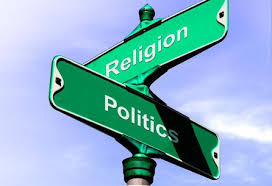Javed Chaudry
In order to assess the compatibility of Islam and secularism, we need to define and understand what these two entities are, only then we can be in a position to answer the question. The answer will depend on our definitions and our understanding of those two terms.
In its simplest and the basic form, secularism means the separation of the state and the religion. This means both coexist, side by side, without interfering with each other. The important implication is that the state does not favor a particular religion over another. In such a state, the religion is one’s private business.
According to Bernard Lewis, the word secularism appears to have been first used in the English language in the middle of 19th century. It was used with the doctrine that morality should be based on rational considerations for human wellbeing to the exclusion of God or the afterlife. In this definition, since there is an attempt to exclude God and afterlife, one can imagine why many take secularism as an atheistic notion.
However, one can limit the secularism to the separation of religion and the state. That is the definition that I support. The next step would be to define Islam and its obligations.
Islam in a nut shell is a monotheistic religion characterized by the doctrine of absolute submission to Allah and by reverence for Prophet Muhammad as the last prophet of Allah through whom the book of guidance, the Quran was revealed.
The Quran provides the code of ethics, the duties and the obligations for the humanity. The Quran does not dictate how a government should be formed or established. Instead, the emphasis is on providing justice, fairness, security and equality for all citizens. During the early days of Islam, a rigorous concept of a state did not exist. The prophet often provided justice to the Christians and Jewish living in Madina in accordance with their own scriptures when the conflict existed within those communities.
Since the Quran does not provide details of the state infrastructure or its detailed rules and mechanisms, it follows that as long as the basic human rights, equality and justice is provided in accordance with the teachings of the Quran, any man-made legal system would be acceptable for the state.
Today, millions of Muslims are living in the West, predominantly Christian but secular countries. The basic laws in these countries were derived from the Bible, and revised according to the needs of time. A predominantly Muslim country can take similar steps, setting up the legal infrastructure in accordance with the Quran making sure that every citizen is treated fairly and equitably irrespective of their faith.
Secularism is essentially an allowance to the citizens to practice their faith the way they see fit without any interference from the government. This is quite in line with the Quranic verse 2:256 (no compulsion in religion). Also, it helps to ensure that no religious group has supremacy over others. That was, in fact, also the vision of Mr. Jinnah at the inception of Pakistan.
In today’s world there is hardly any majority Muslim country without non-Muslim population. Moreover, there are several sects and factions among Muslims as Islam is no longer a monolithic religion. In such situations, the concept of secularism becomes even more important, rather highly desirable. Even if there were no non-Muslims in a Muslim country, the real question then would be whose Islam is to be followed to make the laws? But if we exclusively follow the Quran, there will be no problems as the Quran does not support divisions within Islam as opposed to various sects and factions which have mushroomed over the last 14 centuries.
With the rising strife among the sects within Islam, it is all the more reason that secularism be adopted. It will help to reduce the dissonance between various factions also provide equality to the non-Muslim segment of the population.
The major ideological weakness in today’s Muslim societies is that they tend to apply the 7th century thinking to find answers to today’s challenges. The 7th century life in Madina under the leadership of the prophet or even under the four Khalifas was basically a simple tribal existence with no concept of a modern day state. During those times the concept of a modern state did not exist anywhere in the world.
The establishment and administration of a state requires three fundamental essentials: The planning and management, the moral values, and the jurisprudence – the body of legal system.
The planning and management of a state requires a variety of skills and knowledge acquired through history and the sciences of various disciplines that man has ever discovered and learned over the centuries. The moral values and to an extent the jurisprudence does come from religion but all of it may not have been inspired by the scriptures such as the Quran.
The Islamic jurisprudence heavily depends on Sharia and Hadith literature; the source of both is verbally transmitted traditions. That is where the real problem lies when trying to distinguish between the Quranic injunctions and a large body of socio-cultural literature often taken for granted as an integral part of Islam.
Obviously the running of a state requires knowledge and information beyond what the religious books are meant to provide. Since the Quranic teachings require justice and equality for all citizens and at the same time no demands are made for an ideological Islamic state, secularism is therefore a necessity especially in a state with citizens of different faiths and sects. Secularism helps to achieve justice and equality without opposing the Quranic injunctions, it is therefore compatible with Islam.
♦




























One Comment